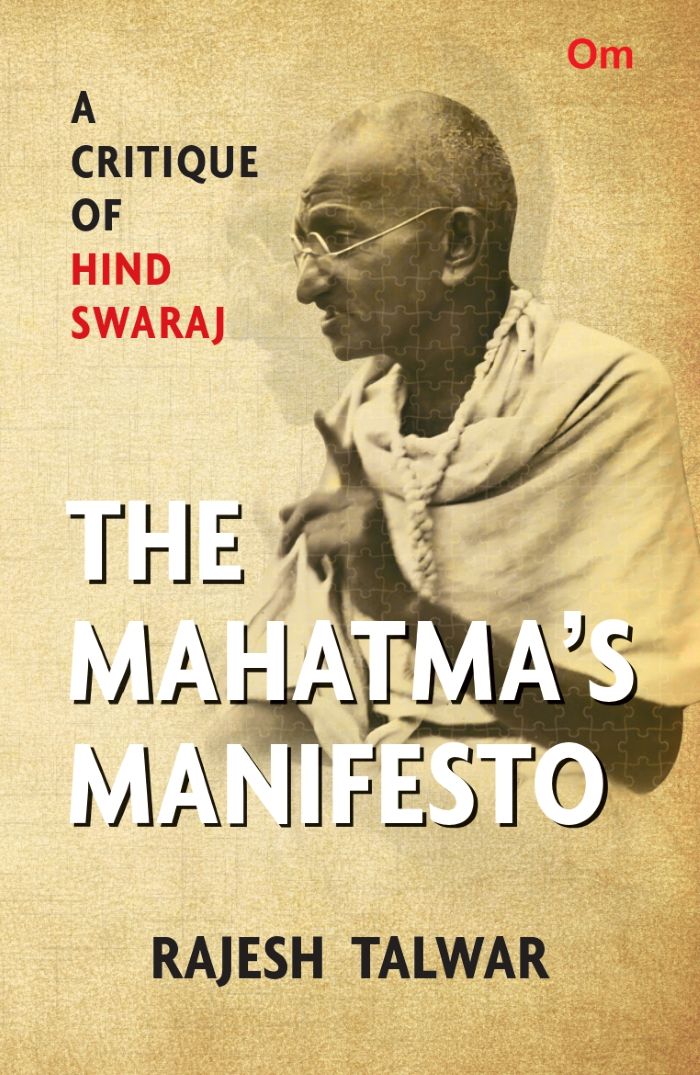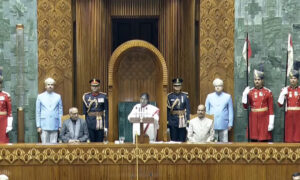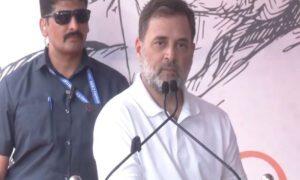
The Mahatma’s Manifesto by the best-selling author and UN human rights legal advisor Rajesh Talwar is an insightful work that delves into Gandhi’s revolutionary ideas, with a particular focus on his 1909 book Hind Swaraj, which laid the groundwork for India’s struggle for independence. Talwar critiques Gandhi’s rejection of modernity, industrialization, and Western thought, arguing that these ideas are impractical and regressive.
Gandhi’s Hind Swaraj advocates for a return to a simpler, more traditional way of life, with a focus on self-sufficiency and passive resistance. However, Talwar contends that this vision is isolating and economically stifling, and that it denies the complexities and potential of a rapidly evolving world.
Talwar’s work has been praised by notable figures, including Khushwant Singh, who reviewed his book “The Judiciary on Trial” and recommended it as a must-read. With “The Mahatma’s Manifesto” Talwar continues to offer thought-provoking insights into the complexities of Indian history and politics.
Chapter 7
GANDHI ON EDUCATION
To give millions a knowledge of English is to enslave them.
—Mahatma Gandhi
If Gandhi is against industrialisation, machinery and railways, could we really expect him to support the study of the physical sciences, such as the laws of chemistry, physics, and so forth? Should students be reading up on matters such as how a steam engine works, or even for that matter a simpler contraption, the fan—under which Gandhi spent many nights in the hot and humid countryside with his female bed companions?
What were Gandhi’s views on electricity, since so many gadgets need electricity in order to run? Did the Mahatma wish to do away with electricity itself?
In an early chapter in his manifesto, Gandhi confirms that it would not be a bad thing to do away with electricity altogether and return to the age of candles with wicks.
Could we expect such a person to support the idea of young girls and boys studying subjects such as physics, chemistry and biology? Probably not. And as we start to read the chapter in the manifesto on education, we see that the Mahatma stays true to form.
‘A peasant earns his bread honestly,’ Gandhi wrote.
And do scientists not do so? Are all the physicists, chemists and inventers in the service of the Devil?
‘He [the peasant] has ordinary knowledge of the world. He knows fairly well how he should behave towards his parents, his wife, his children and his fellow-villagers.’ Is this really true? Isn’t Gandhi painting a romanticised, idealised image of the peasant? Isn’t there a great deal of patriarchy in Indian villages, with wife-beating not being uncommon? As for children, they too receive corporal punishment rather too frequently. And as for behavior towards ‘fellow-villagers’ … unfortunately, all too often the upper-caste peasant knows very well how to treat and oppress those below him in the caste pecking order, not to mention the outcastes—the Dalits.
Gandhi carries on in this fashion, eulogising his mythical peasant: ‘He understands and observes the rules of morality. But he cannot write his own name.’
Then almost as if anticipating the Bhutanese king’s recommendation, a century later with regard to Gross Domestic Happiness replacing gross domestic product, Gandhi suggests a ‘test of contentedness’ to silence all who disagree with him. ‘What do you propose to do by giving him a knowledge of letters? Will you add an inch to his happiness? Do you wish to make him discontented with his cottage or his lot? And even if you do, he will not need such an education.’
The argument that Gandhi advances is really no different from those advanced by ultra-conservative fathers in Indian villages who do not support the idea that their daughters should receive an education. If the daughter has to grow up to eventually become a housewife, as this argument runs, what use will it be for her to receive an education? Will it not only serve to make her more discontented? Gandhi also makes a bland, unsubstantiated assertion on how happy the peasant is, and produces no empirical evidence to support the view that the peasant is less discontented than an educated man. Also, it must be said that Gandhi at once gets into an analysis of the costs and benefits of education, not considering for a moment that education might be worthwhile in itself: ‘Now, let us take higher education. I have learned Geography, Astronomy, Algebra, Geometry, etc. What of that? In what way have I benefited myself or those around me? Why have I learned these things?’
Would the Mahatma have supported Malala Yousafzai’s desire to study? It was during a chemistry class that she learned that she had been awarded the Nobel Peace Prize.
Would he ban the study of sciences altogether, for sciences further industrialisation, which promotes evil and takes us away from the Kingdom of God?
And what would have been Gandhi’s take on Taliban’s point of view? They are, after all, against the education of girls, and favour a religious type of education.
The Mahatma is full of contradictions. He took it upon himself to teach various subjects to his niece Manu. As part of his general inconsistency, he even taught her the sciences, algebra, geometry and mathematics. His views against the teaching of these subjects appear to have mellowed somewhat.
In her memoir, Manu wrote: ‘In the Aga Khan Palace I had the good fortune to learn from him various subjects such as Arithmetic, Algebra, Geometry, Geography, History, Science and Sanskrit; but English he never taught me.’
While writing Hind Swaraj, Gandhi does not stop to consider that many centuries prior to the arrival of the British, there was the study of science and mathematics, including astronomy, in India too, with famous astronomers such as Aryabhata. Renowned mathematicians in the world today study Vedic mathematics, which was studied and taught in ancient India.
( Extracted with due permission from Author, publisher)
[the_ad id=”55722″]


















